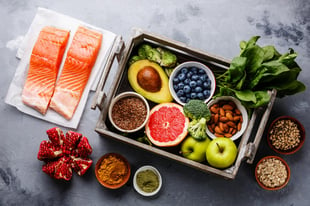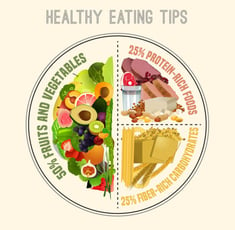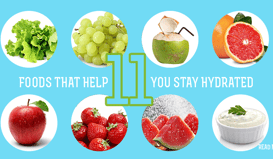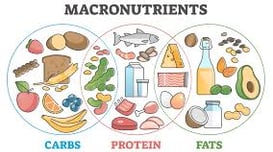Healthy Diet
A healthy diet is one that provides the necessary nutrients your body needs to function effectively while maintaining overall health. It includes a balanced variety of foods, including fruits, vegetables, whole grains, lean proteins, and healthy fats, while limiting processed foods, added sugars, and excessive salt. Here are some key principles of a healthy diet:
1. Eat a Variety of Foods
Fruits and Vegetables: Aim to fill half of your plate with fruits and vegetables. They're packed with vitamins, minerals, antioxidants, and fiber, which support overall health.
Whole Grains: Choose whole grains over refined grains. Whole grains like oats, quinoa, brown rice, and whole wheat are high in fiber and nutrients.
Lean Proteins: Include sources of lean protein such as fish, poultry, beans, legumes, tofu, and eggs. Plant-based proteins like lentils and chickpeas are also excellent choices.
Healthy Fats: Opt for unsaturated fats like olive oil, avocado, nuts, seeds, and fatty fish (e.g., salmon, mackerel). These fats help support heart health.
2. Portion Control
Pay attention to portion sizes to avoid overeating. It's easy to consume extra calories, especially when eating processed or calorie-dense foods. Using smaller plates or bowls can help control portions.
3. Limit Processed Foods and Added Sugars
Minimize your intake of highly processed foods, which can be high in unhealthy fats, sugars, and sodium. Examples include packaged snacks, sugary drinks, and fast food.
Try to reduce the amount of added sugars in your diet. Instead of sugary snacks and sodas, opt for natural sweeteners like fresh fruit or small amounts of honey or maple syrup.
4. Stay Hydrated
Water is essential for bodily functions, digestion, and maintaining energy levels. Aim for about 8 glasses (64 ounces) of water a day, though this may vary based on individual needs and activity levels.
Herbal teas, infused water with fruits or herbs, and other low-calorie beverages can also contribute to hydration.
5. Limit Salt Intake
Too much sodium can increase your risk of high blood pressure and heart disease. Avoid adding too much salt to meals, and be mindful of high-sodium foods like canned soups, salty snacks, and processed meats.
Use herbs and spices for flavoring instead of relying on salt.
6. Mindful Eating
Eating mindfully can help you recognize hunger and fullness cues, preventing overeating. Take time to enjoy your meals, chew slowly, and avoid distractions like TV or phones while eating.
7. Balance Your Macronutrients
Carbohydrates: Include complex carbs (like vegetables, fruits, and whole grains) that are rich in fiber and provide steady energy.
Proteins: Protein is crucial for muscle repair, immune function, and overall body maintenance.
Fats: Healthy fats help with nutrient absorption, hormone production, and energy.
8. Meal Planning and Preparation
Planning and prepping your meals ahead of time can help ensure you're making healthier choices and avoid relying on fast food or unhealthy snacks.
Include a variety of colors on your plate (from fruits and vegetables), as different colors represent different nutrients.
Example of a Balanced Meal:
Breakfast: Oatmeal with berries, chia seeds, and a handful of nuts.
Lunch: Grilled chicken salad with mixed greens, avocado, tomatoes, cucumber, and olive oil dressing.
Snack: Greek yogurt with a sprinkle of seeds or an apple with a handful of almonds.
Dinner: Grilled salmon with quinoa and steamed broccoli or a vegetable stir-fry with tofu and brown rice.
9. Exercise and Physical Activity
A healthy diet is most effective when combined with regular physical activity. Aim for at least 150 minutes of moderate aerobic exercise (like walking, swimming, or cycling) per week, in addition to muscle-strengthening activities.
Special Considerations:
Vegetarian/Vegan Diet: A well-planned vegetarian or vegan diet can be healthy. Ensure you're getting enough protein, B12, iron, calcium, and omega-3 fatty acids from plant-based sources.
Food Sensitivities: If you have allergies or intolerances (like gluten or dairy), choose suitable alternatives to maintain a balanced diet.
A healthy diet is a long-term commitment, not just a short-term fix. Small, consistent changes can have a significant impact on overall health over time.


















